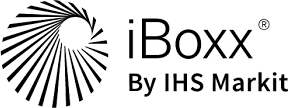
A security is a tradable financial asset. The term commonly refers to any form of financial instrument, but its legal definition varies by jurisdiction. In some countries and languages people commonly use the term "security" to refer to any form of financial instrument, even though the underlying legal and regulatory regime may not have such a broad definition. In some jurisdictions the term specifically excludes financial instruments other than equities and fixed income instruments. In some jurisdictions it includes some instruments that are close to equities and fixed income, e.g., equity warrants.

In finance, a bond is a type of security under which the issuer (debtor) owes the holder (creditor) a debt, and is obliged – depending on the terms – to provide cash flow to the creditor. The timing and the amount of cash flow provided varies, depending on the economic value that is emphasized upon, thus giving rise to different types of bonds. The interest is usually payable at fixed intervals: semiannual, annual, and less often at other periods. Thus, a bond is a form of loan or IOU. Bonds provide the borrower with external funds to finance long-term investments or, in the case of government bonds, to finance current expenditure.
In finance, a convertible bond, convertible note, or convertible debt is a type of bond that the holder can convert into a specified number of shares of common stock in the issuing company or cash of equal value. It is a hybrid security with debt- and equity-like features. It originated in the mid-19th century, and was used by early speculators such as Jacob Little and Daniel Drew to counter market cornering.

The Tel Aviv Stock Exchange is Israel's only public stock exchange and a public company that has been traded on the Tel-Aviv Stock Exchange since August 1, 2019. Legally, the exchange is regulated by the Securities Law (1968), and is under the direct supervision of the Israel Securities Authority (ISA).
An exchange-traded fund (ETF) is a type of investment fund that is also an exchange-traded product, i.e., it is traded on stock exchanges. ETFs own financial assets such as stocks, bonds, currencies, debts, futures contracts, and/or commodities such as gold bars. The list of assets that each ETF owns, as well as their weightings, is posted on the website of the issuer daily, or quarterly in the case of active non-transparent ETFs. Many ETFs provide some level of diversification compared to owning an individual stock.
A corporate bond is a bond issued by a corporation in order to raise financing for a variety of reasons such as to ongoing operations, mergers & acquisitions, or to expand business. The term is usually applied to longer-term debt instruments, with maturity of at least one year. Corporate debt instruments with maturity shorter than one year are referred to as commercial paper.
The bond market is a financial market where participants can issue new debt, known as the primary market, or buy and sell debt securities, known as the secondary market. This is usually in the form of bonds, but it may include notes, bills, and so on for public and private expenditures. The bond market has largely been dominated by the United States, which accounts for about 39% of the market. As of 2021, the size of the bond market is estimated to be at $119 trillion worldwide and $46 trillion for the US market, according to the Securities Industry and Financial Markets Association (SIFMA).
A bond fund or debt fund is a fund that invests in bonds, or other debt securities. Bond funds can be contrasted with stock funds and money funds. Bond funds typically pay periodic dividends that include interest payments on the fund's underlying securities plus periodic realized capital appreciation. Bond funds typically pay higher dividends than CDs and money market accounts. Most bond funds pay out dividends more frequently than individual bonds.
State Street Global Advisors (SSGA) is the investment management division of State Street Corporation and the world's fourth largest asset manager, with nearly $4.14 trillion (USD) in assets under management as of 31 December 2021.
The JPMorgan Emerging Market Bond Index (EMBI) are a set of three bond indices to track bonds in emerging markets operated by J P Morgan. The indices are the Emerging Markets Bond Index Plus, the Emerging Markets Bond Index Global and the Emerging Markets Bond Global Diversified Index.

Renaissance Capital is an emerging and frontier markets focused investment bank founded in 1995 in Russia. The firm has offices in Moscow, London, New York, Lagos, Nairobi, Cairo and Nicosia.

A bond index or bond market index is a method of measuring the investment performance and characteristics of the bond market. There are numerous indices of differing construction that are designed to measure the aggregate bond market and its various sectors A bond index is computed from the change in market prices and, in the case of a total return index, the interest payments, associated with selected bonds over a specified period of time. Bond indices are used by investors and portfolio managers as a benchmark against which to measure the performance of actively managed bond portfolios, which attempt to outperform the index, and passively managed bond portfolios, that are designed to match the performance of the index. Bond indices are also used in determining the compensation of those who manage bond portfolios on a performance-fee basis.

iBoxx is a financial services division of IHS Markit that designs, calculates and distributes fixed income indices. iBoxx is overseen by IHS Markit Benchmark Administration Limited, which is regulated by the Financial Conduct Authority and is an authorized benchmark administrator under the UK Benchmarks Regulation. IMBA UK's benchmark administration activities have been conducted in compliance with the IOSCO Principles for Benchmarks since 2014.

In finance, a stock index, or stock market index, is an index that measures the performance of a stock market, or of a subset of a stock market. It helps investors compare current stock price levels with past prices to calculate market performance.

The Moscow Exchange is the largest exchange in Russia, operating trading markets in equities, bonds, derivatives, the foreign exchange market, money markets, and precious metals. The Moscow Exchange also operates Russia's central securities depository, the National Settlement Depository (NSD), and the country's largest clearing service provider, the National Clearing Centre. The exchange was formed in 2011 in a merger of the Moscow Interbank Currency Exchange and the Russian Trading System.

Solactive is a German company provider of financial indices based in Frankfurt, Germany. The company develops, calculates, and markets cost-efficient indices over several asset classes.
The National Settlement Depository (NSD), headquartered in Moscow, is a Russian non-bank financial institution and central securities depository (CSD). It provides depository, settlement, and related services to financial market entities. Its services cover both securities listed in Russia's 2011 Federal Law "On the Central Securities Depository", and other Russian and foreign equity and debt securities. NSD is the CSD of the Russian Federation, and was assigned CSD status by the Russian Federal Financial Markets Service in 2012. It is the largest securities depository in Russia by market value of equity and debt securities held in custody, which in June 2022 were 70 trillion roubles. It is a member of the Moscow Exchange Group. In March 2022, in the wake of the 2022 Russian invasion of Ukraine, NSD's accounts were blocked and frozen at international CSDs Euroclear and Clearstream. In addition, the European Union added NSD to its sanctions list, blocking NSD's accounts in euros, and in Euroclear and Clearstream; as a result, NSD could not service forex-denominated bonds issued by Russia and Russian companies. NSD suspended transactions in euros.

Economic turmoil associated with the COVID-19 pandemic has had wide-ranging and severe impacts upon financial markets, including stock, bond, and commodity markets. Major events included a described Russia–Saudi Arabia oil price war, which after failing to reach an OPEC+ agreement resulted in a collapse of crude oil prices and a stock market crash in March 2020. The effects upon markets are part of the COVID-19 recession and are among the many economic impacts of the pandemic.








